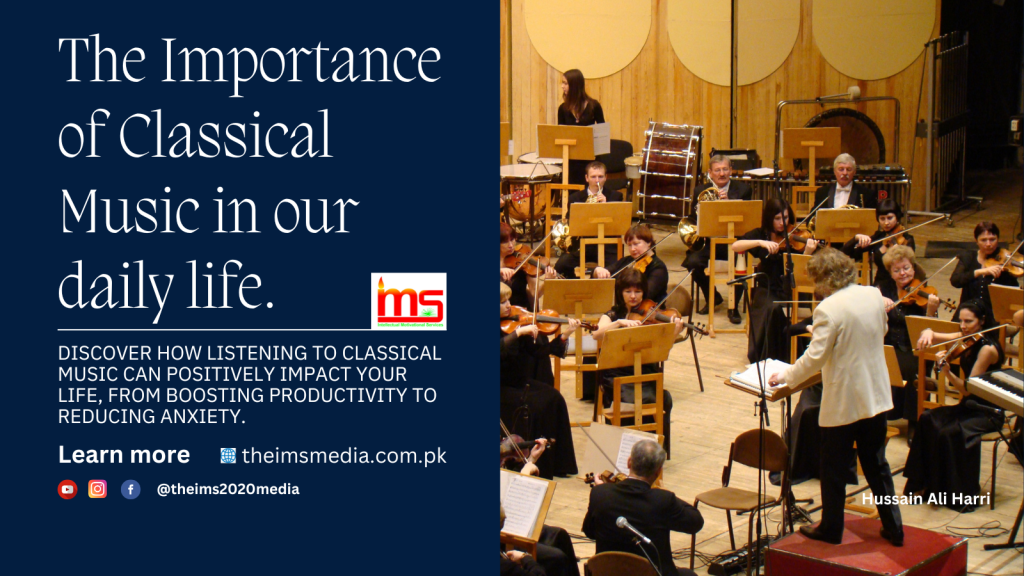
The importance of classical music
Presented by: Hussain Ali Harri
The importance of classical music has again become a part of our lives because pop music and other music methods have left positive and negative effects in our lives, taking away from nature’s bestowals. There is restlessness in human life, and peace of mind is unavailable.
The old age, which we also know as classical music, has its impression, a distinct blend is found in classical music, which has a whole life story and is closer to nature. People perform it together. People used to live closer to each other through activities like stage dramas and movies, through which people appreciated each other’s qualities and kept away from the artificial world through such activities. People were closer to real life. There used to be peace in a person should promote modern and classical music.
Classical Music, Skill, and Art
The integration of harmonious musical elements allows composers to deliver their scores with ease and precision, fostering enhanced audience interaction and engagement with the composer’s work.
By artfully combining different facets of composition, composers can create a cohesive whole that resonates with their target audience.
Musical framework
Form in music pertains to how a piece unfolds across its musical framework. Achieving this involves considerations such as melodious progression, dynamics, and consistent quality throughout the piece, rather than randomly repeating past motifs at intervals.
By ensuring that the rhythm aligns harmoniously with their work, composers can enrich the overall ambiance and mood of their performance.
Beyond an understanding of essential principles in melody and harmony, composers also employ a variety of performance techniques to elevate their presentations.
These techniques of classical music
These techniques encompass recitative practice, solo performances, duets, operatic suites, and stage productions. Recitative practice involves acquainting the composer with diverse musical genres before conducting or rehearsing each performance session.
Solo performances entail executing pieces without any accompaniment, while duets involve presenting multiple sets of music together.
Operatic suites entail crafting ensemble pieces with significant melody, and stage productions involve arranging special effects or movements to enhance the experience for both performers and audiences.
Important links about music
Jan Thomas
More about related articles
Related post will be published as soon:
The Evolution of Art Nouveau: From Baroque to Romanticism


Very informative and interesting
I’m glad you found the information both informative and interesting! If you have any specific questions or topics you’d like to explore further, feel free to ask. I’m here to help!
I truly appreciate your technique of writing a blog. I added it to my bookmark site list and will
Dear readers, we are glad to have you on our website. Your visit is warmly welcomed. We appreciate your encouragement and positive feedback, and we hope that you will continue to support us in this way. thanks